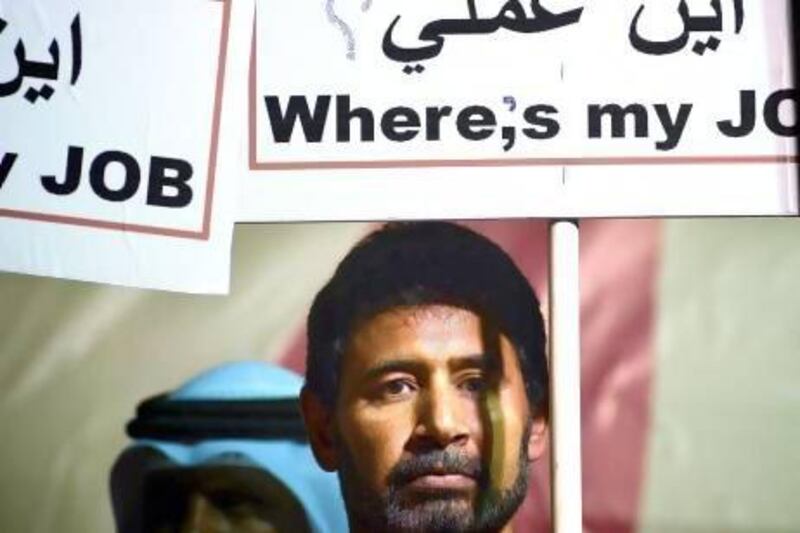Arab countries must improve their economic competitiveness if they are to overcome their biggest challenge - unemployment - according to a report from the World Economic Forum.
The findings of the Arab World Competitiveness Report were presented at the WEF Middle East meeting in Jordan yesterday. Some Arabian Gulf countries, including Qatar and the UAE, improved their competitiveness in 2012-13, moving up the global leagues.
Other economies - such as those of Egypt and Yemen - deteriorated compared with world rivals.
The WEF said: "The Arab world urgently needs institutional reform and extra investment in education if it is to create enough jobs for its youthful and growing populations." Competitiveness is defined by the WEF as the potential ability of a country to grow in the medium term.
The Swiss-based WEF puts Switzerland at number one in the world competitiveness tables, ahead of Singapore and Finland. Hong Kong is ranked ninth.
Qatar is the highest placed Arab country in the tables, at 11th place, up one ranking from last year. Saudi Arabia is the second in 18th position, down one slot.
The UAE rose three places to 24th position, ahead of big economies such as China, Turkey and Brazil. Margareta Drzeniek, the WEF's lead economist, said that the lower ranking of the UAE reflected the fact its economy was already more diversified than Qatar or Saudi. "We regard the UAE now as an innovation economy," she added.
"Overall, the UAE's competitiveness reflects the high quality of its infrastructure, as well as its highly efficient good market. Strong macroeconomic stability and some positive aspects of the country's institutions - such as an improving trust in politicians and high government efficiency - round up the list of competitive advantages," she said.
"Going forward, putting the country on a more stable development path will require further investment to boost health and educational outcomes," she added.
The report identifies a number of areas where "regional leaders could prioritise reform and in order to unlock barriers to job creation and private sector expansion". It found a "pervasive education and innovation gap in countries in the Gulf". Weak institutions, infrastructure and labour markets hinder the rest of the Arab world, the report said.
WEF said that "leaders in the Arab world who embrace the challenge of lifting competitiveness and enabling private sector growth could look forward to a 'win-win' scenario of higher employment and greater social stability".
Other ranking nations were Oman at 32nd, Bahrain at 35th and Kuwait at 37th.
"Part of the components of competitiveness is the hardware," said Yasar Jarrar, a partner of the consulting firm Bain and Company. "Part of it is loosening up rules and, for example, making it easier for people to get visas and making it easier for people to start businesses. On those aspects, the UAE, Saudi Arabia and Qatar have gone a long way.
"However, we are still uncompetitive compared to the Hong Kongs and the Singapores out there because of poorer performance in the software aspects. These are higher education systems, the talent pipeline, productivity and IT," he added.
The forum also considered small-to-medium enterprises, one of the areas economists believe can help a country improve its competitiveness.
SMEs account for the majority of companies in the region and provide a significant portion of private-sector employment.
But loans to small businesses in the region make up only 8 per cent of total lending, short of double-digit levels in other developing nations. The shortfall means they are starved of capital needed to grow and flourish. Red tape and an excess of other regulations can also stop them from growing, one session heard.
"In this region first you need the growth and second you need the competitiveness," said Jin-Yong Cai, the chief executive of International Finance Corporation, the private sector investment arm of the World Bank. "Creating a company requires ensuring it has a competitive edge."
[ tarnold@thenational.ae ]





